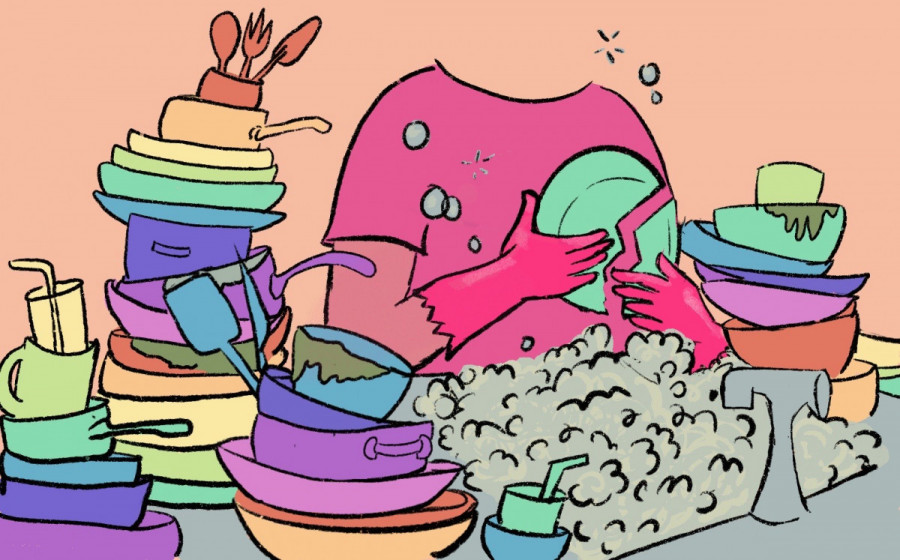Lysol vs. vinegar: The ideological warfare in our kitchen
From our kitchen essentials to the anti-oppression struggle
I live in a queer housing collective of eight people, which was recently embroiled in ideological warfare—all surrounding a bottle of cleaning spray on the kitchen counter. We have had Lysol in that bottle for years, then someone replaced it with apple cider vinegar, then someone swapped the Lysol back in the bottle, only to be replaced by the vinegar yet again.
In the seemingly trivial corners of our shared living spaces, a profound socio-political battle was being waged. The Lysol versus vinegar debate transcends mere cleaning preferences, reflecting the very fault lines of the global struggles for climate action and self-determination.
Lysol, with, its gleaming branding and corporate-backed promises, represents the deeply entrenched capitalist system that continually sacrifices our planet's health for profit. The same system that, while promising cleanliness, floods our ecosystems with pollutants and fills the pockets of multinational corporations. It kills 99.9 per cent of the germs with sheer brutality, embodying the capitalist machinations that prioritize immediate purification over organic coexistence—neatly packaged in a convenient spray bottle.
On the other side stands vinegar, humble and unpretentious, a symbol of resistance against corporate hegemony. A testament to sustainable choices and the undeniable proof that we don't need multinational conglomerates to dictate our cleanliness norms. The preference for vinegar is a stand against the blind consumerism that's been thrust upon us. It's an act of rebellion, aligning with the worldwide calls for urgent climate action and a break from the chains of profit-driven environmental apathy.
But let's take a moment to pan out from this microcosm of the most important battle in our kitchen’s history and consider the bigger picture. The truth is, while we wrestle with the ideological implications of our kitchen spray bottle, the world faces challenges of an immensely greater magnitude. Our kitchen skirmishes pale in comparison to the global movement for decolonization and immediate action on climate change. It's crucial to remember that, in the grander scheme, the battle over a Lysol bottle or vinegar solution is just that—a bottle in our kitchen where we need a cleaning spray in a housing collective of eight.
Enter the two-bottle solution. The agreement is not a grand compromise between two world views, but rather is a gentle reminder of perspective. It nudges us to remember that all eight of us must find the best way to complete chores that accommodate all of our preferences. We can find convergence in our interconnected, often complex realities. While we should certainly remain anchored in our broader convictions, there are moments to select our battles judiciously. History, both within our queer collective and on grander stages, showcases the perils of rigid stances. The two-bottle solution in our shared space is a testament that there is a solution for everything, as long as we’re willing to listen.
I hope that as these two bottles coexist together, they will become a metaphor of our parallel harmonies. Long live our collective and cleanliness.
This article originally appeared in Volume 44, Issue 2, published September 19, 2023.






